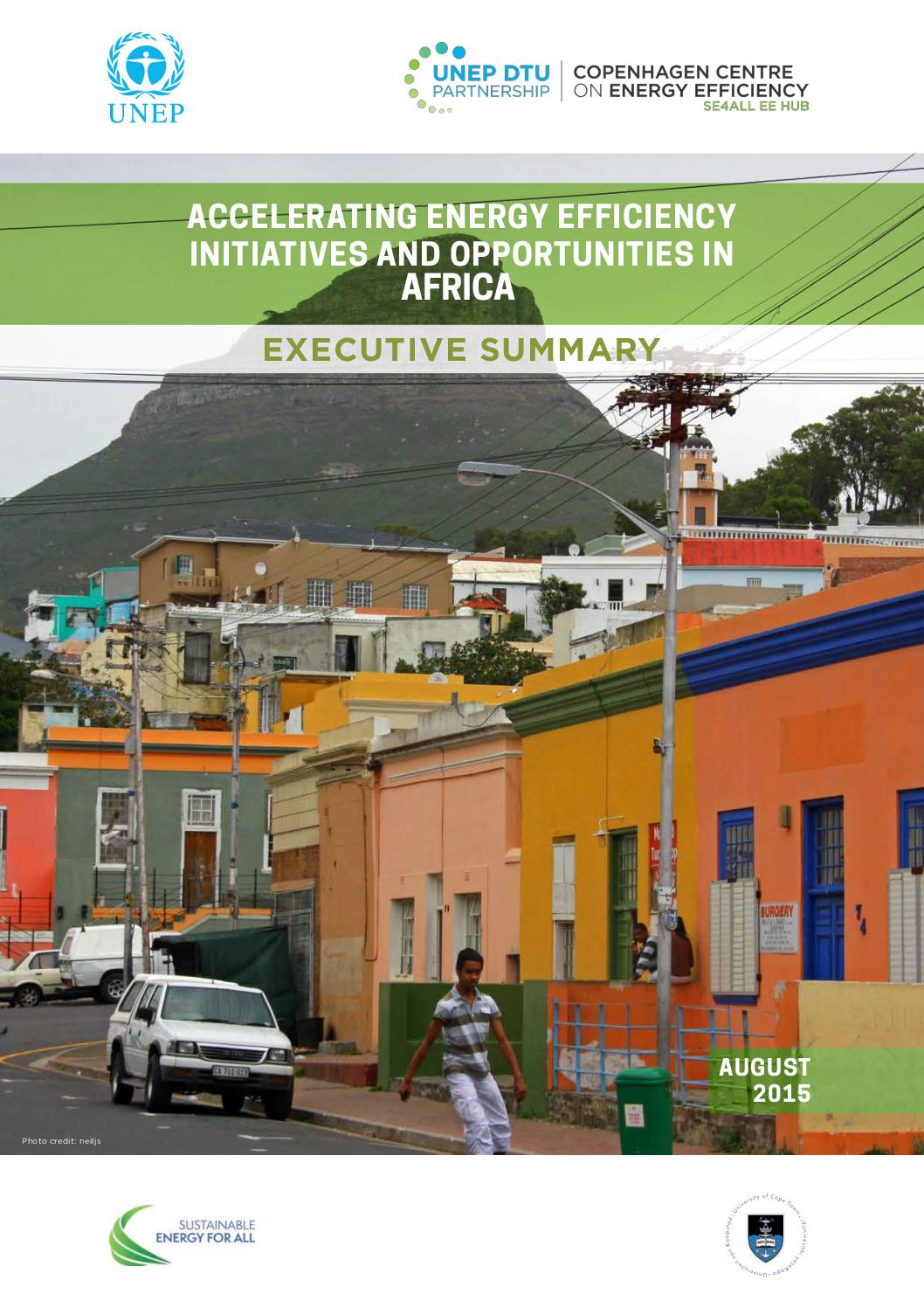This report presents the results of a 2015 study of energy efficiency (EE) initiatives undertaken in African countries. This study, commissioned by the Copenhagen Centre on Energy Efficiency (C2E2), focuses on the areas of success, barriers encountered and improvements in access to energy for the general population. The aim of the study is to identify and suggest areas for future engagement in order to accelerate energy efficiency in the region.
BACKGROUND
The continent of Africa is second only in population to Asia. In spite of this, Africa consumes only 6% of the world’s primary energy. The potential for growth in energy consumption in Africa is rooted mainly in the need for improved access to energy for its people, and also in the continued economic growth of many of its constituent countries. On average 60% of Africans do not have access to clean, reliable energy, and 80% still use traditional biomass for cooking. This results in significant socio-economic, health and environmental disadvantages. Although the potential for improving the implementation of energy efficiency policies and programs exists in all sectors of the African economy, it is often access to energy that takes priority. In reality, the two concepts are inextricably linked: improved EE frees capacity for improving access, while providing access in an energy-efficient manner is more cost-effective than retrofitting at a later stage.
Share this

Sectors: Cross cutting, Renewables
Country / Region: Asia, Philippines
Tags: C2E2, energy, energy efficiencyIn 2 user collections: Energy Efficiency Regional Reports , C2E2 Publications
Knowledge Object: Publication / Report
Published by: C2E2; University of Cape Town
Publishing year: 2015
Author: C2E2; University of Cape Town
